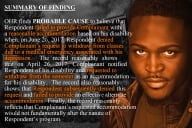You have /5 articles left.
Sign up for a free account or log in.

iStock/filo
Critics of posttenure review of faculty members rightly trace the practice’s origins to the 1990s, when tenure came under fire from conservative state legislators and trustees who assumed that, once granted tenure, the typical professor felt free to come in late, go home early and spend the hours in between hiding from students at the faculty club.
The truth turned out to be the opposite. Instead of laying the foundation for an assault on tenure, the rapid spread and implementation of posttenure review on most state campuses and many private ones demonstrated that the vast majority of tenured faculty work just as hard and well as they did during their probationary years.
Why, then, should tenured faculty members, our reputation for sloth proven false, now embrace posttenure review on its merits?
Part of the answer lies in another development of the 1990s: the banishing of any mandatory retirement age for professors. Long fixed by many institutions at 65, the minimum age at which colleges could make professors retire was raised by federal statute to 70 in 1982, then lifted entirely in 1994. For the past quarter century, the granting of tenure has entailed not a roughly three-decade-long promise of job security but an indefinitely long one.
I am a beneficiary of that change. At 68, I’m aware that I have more years behind me than ahead of me -- I don’t expect to live to be 136, much less to function at a high level for many decades to come. I love everything about the teaching and research I do, and I even like the most important aspects of my service to students, colleagues and profession. But that’s what I like. How do I know I’m still meeting those responsibilities at a high level?
Since 2008, posttenure reviews for all professors at my institution, Rhodes College, have come every six years. What is most valuable about the reviews to me, as well as to the institution, is that the process includes three accountability moments that force both the college and me to confront the facts of my performance.
The first such moment comes when I gather the materials that describe my work during the previous six years -- call it accountability to self.
It would be very easy for any of us to experience a decline in teaching effectiveness or research productivity from year to year that is not obvious, especially to ourselves, if looked at in annual isolation. From one year to the next, I may not notice -- or may fool myself into not noticing -- a 3 or 4 percent falloff in performance. But if that decline is part of a trend that extends over six years, it will be hard -- in fact, bordering on impossible -- for me not to confront the fact of that decline.
The second accountability moment -- accountability to department -- comes when I meet with my chair. Even if I am right to think that by my own lights I’m doing fine, her perspective will be broader. She is more likely than I to notice whether I am advising our majors as well as I should, whether I am teaching the range of courses our students need and whether I am pulling my weight in matters that concern the entire department. She can also ask me to consider whether my assessment of my own work is too kind -- or perhaps even too harsh.
The final accountability moment in the posttenure review process involves accountability to the college. From an institutional perspective broader than my own or my department’s, am I performing at the level now expected of tenured faculty across the board?
Happily, in the two posttenure reviews I have undergone, the answer to all of those questions has been yes, which is important information for me to have. The main thing I want to do is keep on contributing; the last would be to hang around well past my sell-by date.
There’s another benefit I have experienced from these reviews. Not only do they look back over the past six years, they look forward as well. As part of the materials I submit, I must include a prospectus for the next six years. What do I plan to accomplish in the way of improved teaching and additional research? As with the look back, answering that question forces me to lift my eyes above the current moment and think more broadly about whether I will still have enough to contribute to the life of the college.
Would I face consequences if I were performing at a substandard level? In “rare and extreme cases” I would, most of them focused on plans for remediation but with the possibility, seldom invoked, of sanctions that in time could extend even to a salary freeze. Failing remediation, the chief academic officer “will determine an appropriate response,” with an appeal to the faculty tenure and promotion committee possible.
Posttenure reviews take different forms at different institutions. Indeed, the term itself varies from place to place. At the University of Denver, the price of instituting posttenure review this year was calling it something else. At other institutions, reviews are “targeted” -- that is, aimed only at those faculty members who are already suspected of inadequate performance.
Maybe that’s the right approach if one thinks of posttenure review as intrinsically punitive. But if my experience is any guide, that’s not the right way to think about it. In an era without mandatory retirement, realizing that one has reached the end of the road -- or receiving confirmation that one hasn’t -- is worth undergoing those periodic accountability moments.








